Picture this: waking up to birdsong instead of car horns, stepping outside to inhale deep breaths of fresh, clean air, and watching the sunrise paint the sky above rolling hills or a peaceful lake. It’s no vacation fantasy—but a daily reality of Michigan country home living. If you’re looking for a full-time country escape from city stress or a respite to the country for summer or weekend getaways from it all, rural Michigan offers you an unbeatable blend of natural scenery, affordability, and down-to-earth community appeal.
The Great Lakes State is becoming ever more attractive to individuals seeking space, privacy, and a more leisurely pace of life. With old-country farmhouses set deep among oak timber or newer log cabins on sparkling lakes, Michigan’s diverse geography provides just the right background against which to realize your country life dream. Both the four seasons available to experience in the state and its little towns provide individuals with feelings of comfort and belonging that so many harbor as missing from contemporary life.
Whether you’ve been thinking of selling your city condo or high-rise way of life for acres, or you’ll be becoming a weekend visitor-turned-full-time-resident, Michigan rural real estate has some wonderful options to offer you. The key is where to look, what to look for, and what to know about special country property ownership issues.
Why Michigan is Best for Country Living
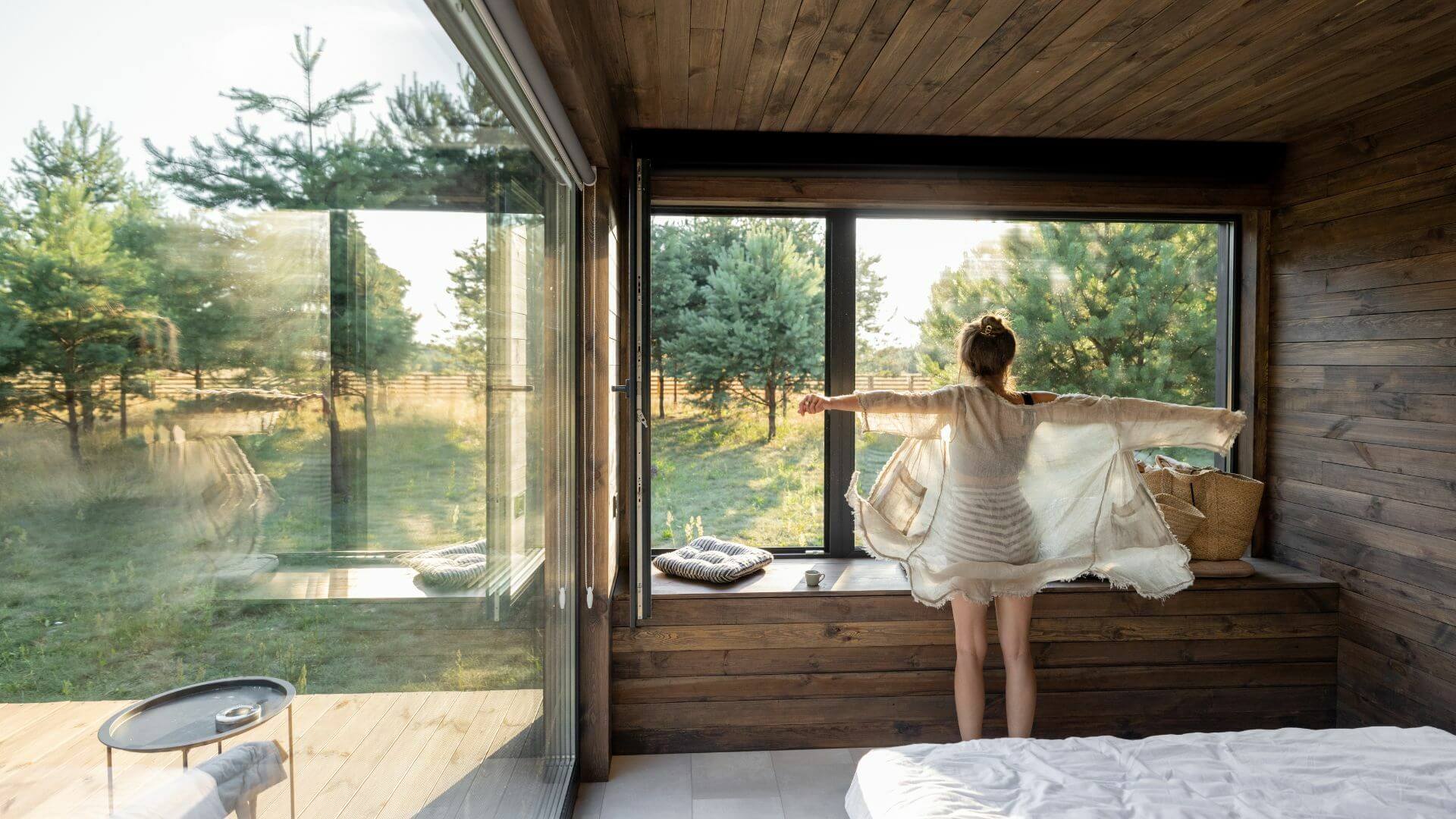 Michigan is America’s best rural life location, and it contains an amazing collection of natural resources found within very few states. There are more than 11,000 inland lakes, 3,200 Great Lakes shoreline miles, and millions of wooded acres, so all opportunities to experience life outdoors and serene escape all live within the state. Environments vary from gentle south country farms to harsh wilderness in the U.P., so no country lifestyle has to compromise its preferred environment.
Michigan is America’s best rural life location, and it contains an amazing collection of natural resources found within very few states. There are more than 11,000 inland lakes, 3,200 Great Lakes shoreline miles, and millions of wooded acres, so all opportunities to experience life outdoors and serene escape all live within the state. Environments vary from gentle south country farms to harsh wilderness in the U.P., so no country lifestyle has to compromise its preferred environment.
The pandemic has changed Americans’ views of rural living virtually overnight, and Michigan has gained hugely from the shift. Localities like Huron County have never been more sought after by families looking to relocate and live remotely and have more space, affordability, and better lifestyle. The renewed interest has brought in fresh capital to rural localities without sacrificing what rural life has to offer.
Michigan’s attractiveness lies in accessibility and infrastructure. Unlike some more secluded rural areas in other states, a significant portion of rural Michigan land has available, reliable internet, making them eligible for telecommuting homes. Small towns in Michigan were able to retain their historical character while addressing contemporary needs, presenting towns to be able to provide peace and convenience.
Nobody can exaggerate the annual seasonality of country life in Michigan’s beauty. Spring brings wildflower exhibitions and maple syrup months, summer entails unlimited lake sports and freshly picked market fresh vegetables, autumn furnishes fall color and harvest season, and wintry weather freezes everything rock solid to be enjoyed by skier, snowmobiler, and porch sitter in rotation. Year-rounded attractiveness, plus relatively affordable property when compared to its oceanfront siblings and sisters, makes Michigan an attractive option to suit twice-a-year and year-rounded country living in similar fashion.
Best Michigan Regions to Buy Country Homes
![]() SouthEast & Southwest Michigan
SouthEast & Southwest Michigan
Michigan’s south-central and south-west regions possess some of the top available rural living locations in the state, which appeal to consumers who desire rural grandeur without absolute seclusion from urban life. Allegan and Berrien Counties can be shown to be the best examples of gaining a balance between both, which provide rolling country, orchards, and village life within commutable distance from major urban centers.
Harbor Country, on the East Side of Lake Michigan is within a short distance of the Indiana border and has gained popularity among workers from Chicago who desire to relocate outright or visit on weekends. New Buffalo, Union Pier, and Lakeside have beautiful lakefront houses, antique houses, and active arts clubs. Accessibility to Chicago makes it a favorite place among individuals who desire to live in rural regions close to city conveniences.
Berrien County stands out with its varied property options ranging from large fruit orchards to quaint lakefront cottages. The area’s wine country brings sophistication to country living with many vineyards and tasting rooms adding up to an exclusive lifestyle mix of recreation and farming.
West Central Michigan
West Central Michigan, regions such as Mecosta and Montcalm Counties, can be purchased very inexpensively by individuals who wish to experience real country life. They have enough money to purchase larger pieces of property at relatively affordable prices yet still remain within decent proximity to Grand Rapids and all area centers. The properties here include working farms, heavy woods, and abundant lakes and streams.
This market appeals especially to buyers who view hobby farms, hunting property, or plain isolation on large acreages. The area itself is a rural country community, rural in its origins, and home to countrymen who live up to rural life’s friendly, helpful country neighbor standard.
Northern Michigan and Upper Peninsula
Northern Michigan and the Upper Peninsula are countryscapes at their finest, and some of its Midwestern countryscapes are stunning. Torch Lake region boasts Caribbean-blue lakes ringed with country estates, and Petoskey and Suttons Bay cities blend small-town charm with upscale amenities.
Mackinac Island, a car-less haven unto itself, reflects its region’s values in maintaining nature and historic continuity. Local mainland areas also have this same appeal in more practical year-round home alternatives.
They draw individuals who desire genuine wilderness living, expansive pristine woods, remote lakes, and rural country towns which stay close to outdoors tradition. They have properties from tiny cabins to sprawling lodges, and frequently have large acre lots and good seclusion.
Michigan Rural Market Trends
Huron and Manistee counties have been flagships within Michigan’s rural realty scene. They have been recognized as buyers have noted their affordability, nature sights, and home-town pride. Huron County, within recent years, has also benefited from improved infrastructure and increased knowledge of its rural agrarian past and lakeshore settlements.
Selecting Your Property Type & Lifestyle to Match
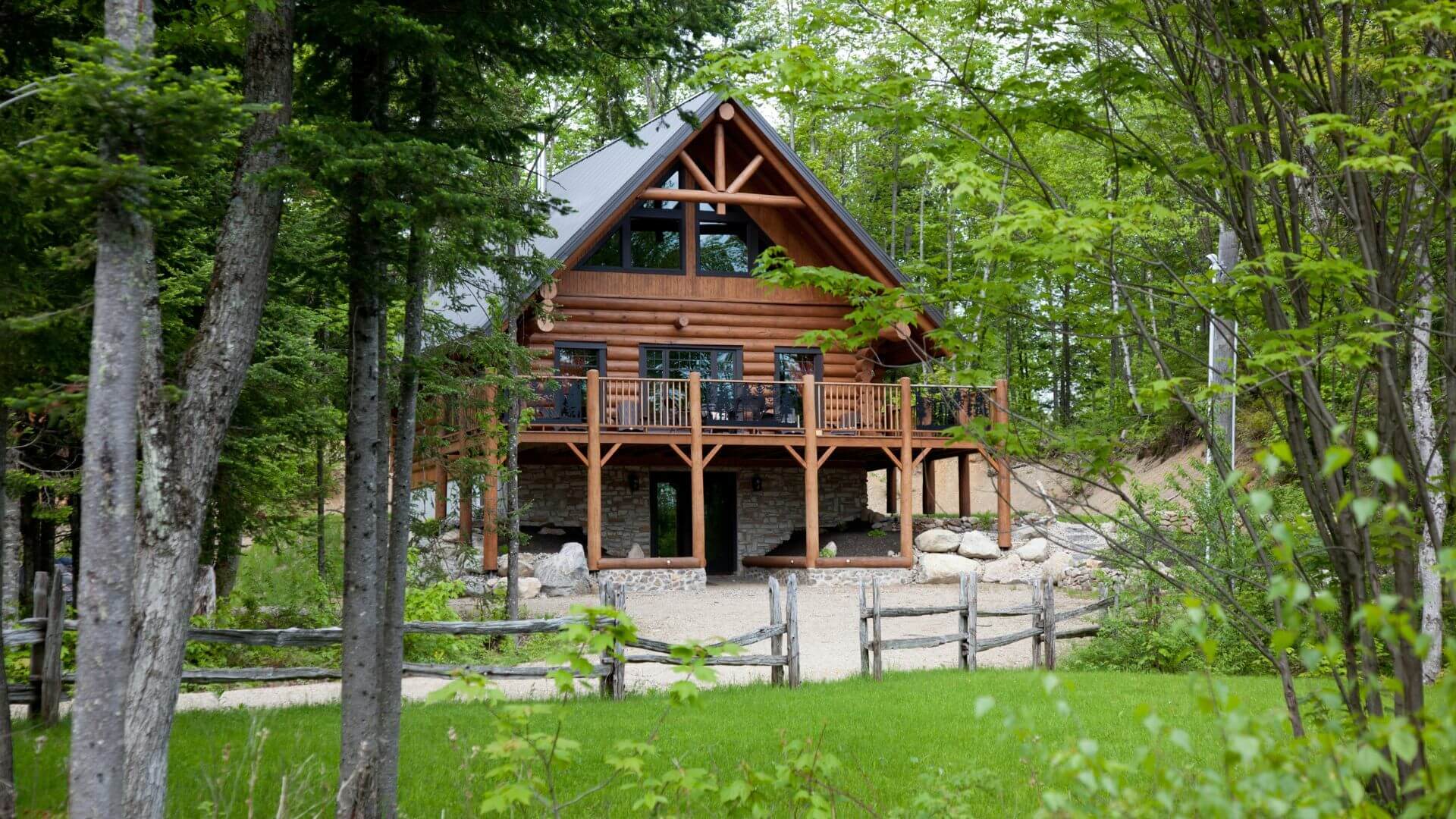 Michigan’s rural property market has houses to suit almost any rural dream lifestyle. Older country houses, some dating back to the 1800s, have real character with original hardwood floors, wrap-around porches, and established gardens. They’ll have outbuildings like barns and sheds, which can be converted to any newer use but continue to have country flair.
Michigan’s rural property market has houses to suit almost any rural dream lifestyle. Older country houses, some dating back to the 1800s, have real character with original hardwood floors, wrap-around porches, and established gardens. They’ll have outbuildings like barns and sheds, which can be converted to any newer use but continue to have country flair.
Timber-framed homes and log cabins are another favorite at least up North and in the U.P. of Northern Michigan, anywhere from humble vacation hideaways to large-year-round homes, frequently featuring dramatic views and incorporating into existing landscapes.
They can be purchased by customers who want to have modern conveniences in rural settings away from city life. They can have gourmet kitchens,spa-like bathrooms, and home automation system but sit perfectly within nature due to careful design and material selection.
The decision between waterfront homes, acreage, vineyard homes, or forest cabins will be more of what type of living you will want. With waterfront houses, there will be scenery and recreation, but more work to be accomplished and winter-time access issues. There is more isolation and room to farm or recreationally use outdoors with acreage homes, but more ground to maintain and perhaps more trips to service the property.
Consider your buyer profile: remote workers require good broadband and home office, retirees value low maintenance and convenience to health facilities, families can value a good community and good schools, and holiday homeowners can be concerned with amenities and seasonality of use.
Step-by-Step Buying Process Of Buying A Michigan Country Home
![]() 1. Financial Analysis and Budgeting
1. Financial Analysis and Budgeting
Rural land ownership also entails other outlays beyond purchase price. Think in terms of well and septic maintenance, long driveways to plow, it costs more to heat larger houses, and a potential restoration requirement of older houses. Some rural houses also equate to higher insurance in virtue of their increased distance from fire units and rescue squads.
Have a general budget not only for the price of the property, including land, but for other expenses of rural living such as propane delivery fees, installing internet, and land upkeep. Have season-specific costs such as snow removal, maintaining larger lots, and possible generator fees due to loss of electricity.
2. Mortgage Choices and Pre-approval
Certain rural properties have unique financing requirements. USDA Rural Development Loans make favorable terms available to eligible properties and buyers, such as no-down-payment financing, but these loans have income limits and area requirements to be scrutinized carefully.
Conventional loans continue to be most prevalent financings, although lenders can have varied needs or stipulations on rural properties, e.g., minimum acre requirements or septic and well assessments. Obtain pre-approval early in your search process, as rural properties sell quickly when it’s a buyers’ market.
3. Work With Experienced Rural Realtors
Choose a realtor with specific experience in rural Michigan properties. They should understand local market conditions, seasonal access issues, zoning regulations, and the unique aspects of country property ownership. Local expertise is invaluable for understanding factors like soil conditions, water rights, and neighborhood dynamics that can significantly impact your rural living experience.
4. Land and Environmental Factors
Country properties involve consideration of environmental issues independent of urban property sales. Well volume and quality must be professionally sampled, and sewer systems properly investigated. Investigate any wetland rules, conservation covenants, or agricultural use restrictions that may exist to possibly rule out future building potential.
Research seasonality closely—a land appears totally available in summer but not readily available in winter months. Think of road maintenance duties as well, considering some rural roads are maintained individually by the respective property owners themselves.
5. Inspections, Zoning, and Permits
The rural property inspections are implemented to be more comprehensive than city inspections. Add well and septics, outbuilding inspections, and property line surveys. Get to know local zoning codes, which can apply to your company’s operations, some pet custody, or property modifications.
Verify any research permit requirements for proposed improvements. Improvements in rural areas have different codes and permit procedures, and some require county versus municipal permits.
6. Seasonal and Closure Factors
Closings need to be well planned, like seasonally related problems which can affect access to property or immediate needs. Northern Michigan winter closings can require special preparedness of heating plant capacity and snow equipment. Summer closings may be times of high recreational use, which can impact on availability of local services.
Tips & Resources to Find Secret Treasures
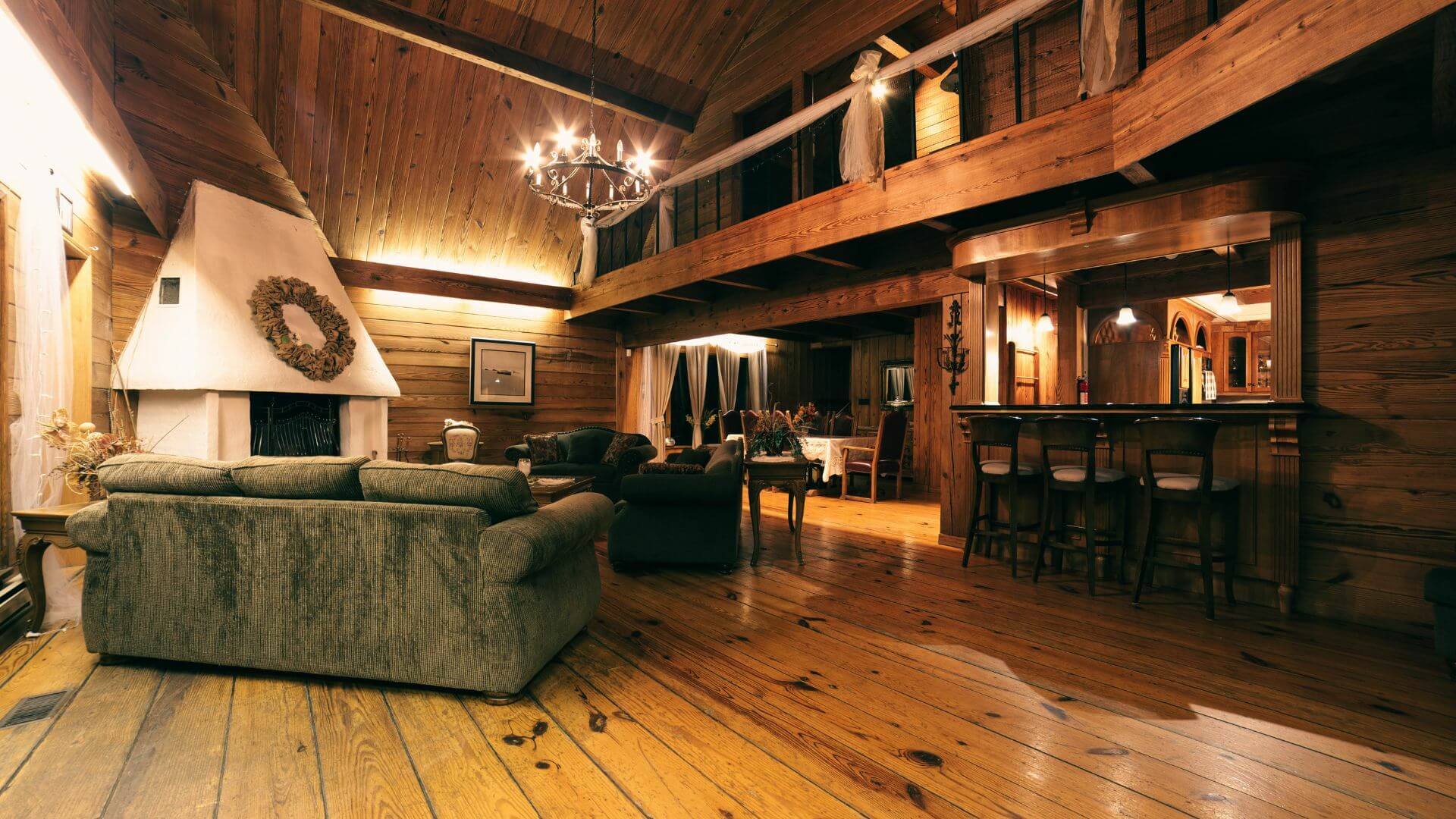 Research smaller Michigan towns that offer exceptional quality of life without premium pricing. Communities like Fennville, known for its arts scene and proximity to Lake Michigan beaches, or Sparta, which offers small-town charm with easy access to Grand Rapids, represent excellent value propositions. Fremont provides lake access and outdoor recreation opportunities, while Grand Haven combines beautiful beaches with a thriving downtown area.
Research smaller Michigan towns that offer exceptional quality of life without premium pricing. Communities like Fennville, known for its arts scene and proximity to Lake Michigan beaches, or Sparta, which offers small-town charm with easy access to Grand Rapids, represent excellent value propositions. Fremont provides lake access and outdoor recreation opportunities, while Grand Haven combines beautiful beaches with a thriving downtown area.
Use county-level market data to identify emerging opportunities. Huron County’s recent strong post-pandemic experience indicates more appreciation of formerly overlooked rural areas. Monitor local papers and county economic development website sources to develop an understanding of infrastructure improvements, new business development, and community development projects, all of which can foreshadow future appreciation opportunities.
Visit properties during different seasons to understand year-round accessibility and maintenance requirements. Spring visits reveal drainage and flooding potential, summer shows the property at its most accessible, fall indicates heating needs and winter preparations required, and winter visits demonstrate real-world access and isolation factors.
Pitfalls to Avoid & Expert Advice
Some common errors rural homebuyers commit include underestimation of maintenance costs, failure to research water rights and well capacity, and failure to closely review internet access to support remote work needs. Buyers also commonly forget to appreciate relationships with neighbors, as neighbors tend to be a prime source of support as well as local knowledge in rural regions.
Observe closely for issues of seasonality of access not noted by initial survey of property. That peaceful country road by summer will be unavailable by springs’ thaws or autumn/winter storms. Get to know utility provision, more frequent disconnection of electric power and resumption times long-lasting:
The expensive surprises are in outbuildings and maintenance on the grounds. That charming old barn may require a new roof, and those ancient trees may require costly maintenance or removal. Include those potential costs in your budget and obtain realistic cost estimates from local contractors before you make an offer.
Best practices demand multiple trips out to a property in variable weather, neighbor meetings who have insightful comments regarding the area, and explorations regarding area service providers from snow plow to internet installation. Emergency response times and how health care is obtained are very crucial, particularly in families who have children or older members.
Things to Expect After Your Move-In
 Country life in rural Michigan has far more to it than scenery to appreciate. Maple syrup season, growing vegetables, and viewing wildlife become sources of pleasant surprise to neophytes to rural life. The country life itself should foster a more personal relationship to natural cycles and more considerate existence.
Country life in rural Michigan has far more to it than scenery to appreciate. Maple syrup season, growing vegetables, and viewing wildlife become sources of pleasant surprise to neophytes to rural life. The country life itself should foster a more personal relationship to natural cycles and more considerate existence.
Area amenities range from place to place but tend to have distinct amenities not enjoyed by inner city dwellers. The U.P. has world-class outdoor recreation and distinct food culture consisting of local fish, game, and microbrews. West Michigan has proximity to world-class wineries, farmers’ markets, and scenic trails demonstrating the area’s heritage.
Smaller-town community life typically involves more personal engagements and interpersonal relationships than urban residence. Festivals, volunteer opportunities, and community organizations provide opportunities for sociability and participation in civic life experienced by many to be extremely rewarding. There can be, however, a cost in terms of less anonymity and potentially different associations within social networks than in urban areas.
Homeowners in rural areas have specific skillsets. One should be good at running a generator, keeping a well-pump maintained, and yearly property upkeep. Most rural individuals tend to have a liking to performing such tasks and gain hands-on skills to help them feel more independent and attached to their property.
Frequently Asked Questions
Can telecommuters support themselves year-round on the Upper Peninsula?
Yes, but internet connectivity and winter preparedness are integral considerations. Some U.P. cities now have high-speed internet, but check its availability at specific pieces of property. Winter requires running heating equipment, alternate power sources, and suitable four-wheel-drive or all-terrain vehicles to navigate snowy streets.
How long properties in rural Michigan stay on the market?
Generally, market time is also radically different by area and price, but highly desirable properties can sell 30-60 days in good markets. Uncommon properties or properties needing heavy rehabbing can stay out a while, but move-in-condition properties in highly sought-after neighborhoods can flip fast.
What are average land sizes and costs?
Average rural parcels are 2-40 acres, and bigger parcels are available. Costs vary greatly depending on location, ranging from less than $200,000 for average homes on small parcels to more than $1 million for lake-front parcels. Northern Michigan parcels and lake-front lots are a premium.
What is the difference between vacation and permanent rural homes?
Vacation homes are not completely insulated, might not have year-round water systems, or sufficient cold weather warmth. Permanent homes have complete utilities, sufficient insulation, and systems appropriate for year-round use. There are homes to be converted from vacation to permanent or permanent to vacation with appropriate upgrades.
Make Your Country Dream a Reality
Your Michigan country vacation fantasy is closer than you could have ever thought possible. If you were attracted to Southwest Michigan’s rolling vineyards, North country’s shimmering lakes, or to Northern’s rugged beauty, there’s a perfect country property just waiting to be found by you.
Most essential to success is to be familiar with lifestyle wants, engage competent area professionals, and spend time to research various regions and property types. Michigan rural real property offers unparalleled value and lifestyle benefits to open-minded individuals who have an affinity with country lifestyle.
Ready to begin searching for your dream Michigan country house? Speak to our local experts who have inside knowledge of country house purchasing and can take you to properties to meet your dreams and budget. Why not have a tour of properties to see firsthand landscapes and peace of mind to be found in rural heartland Michigan? Your country getaway is closer than you think.
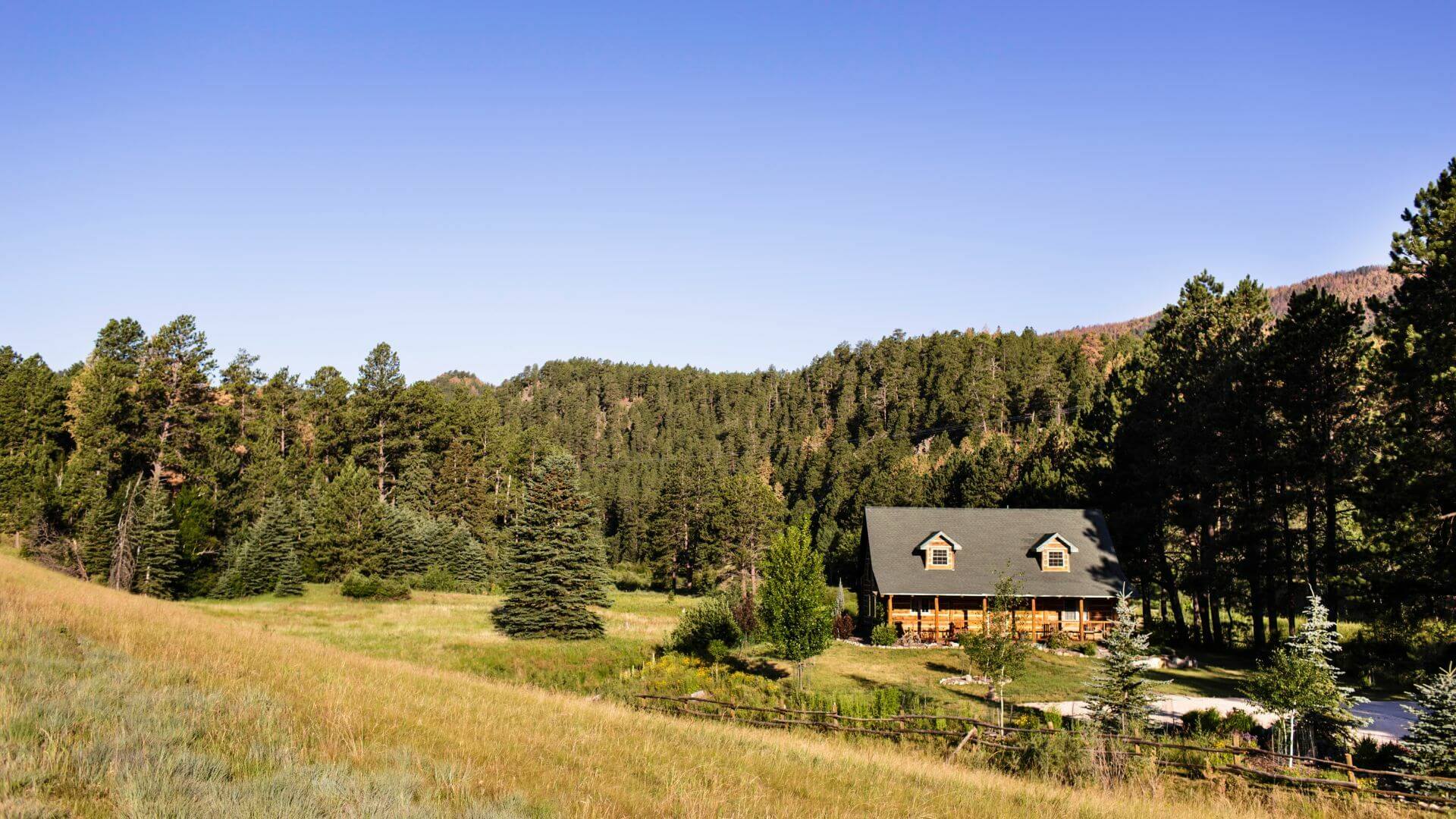 SouthEast & Southwest Michigan
SouthEast & Southwest Michigan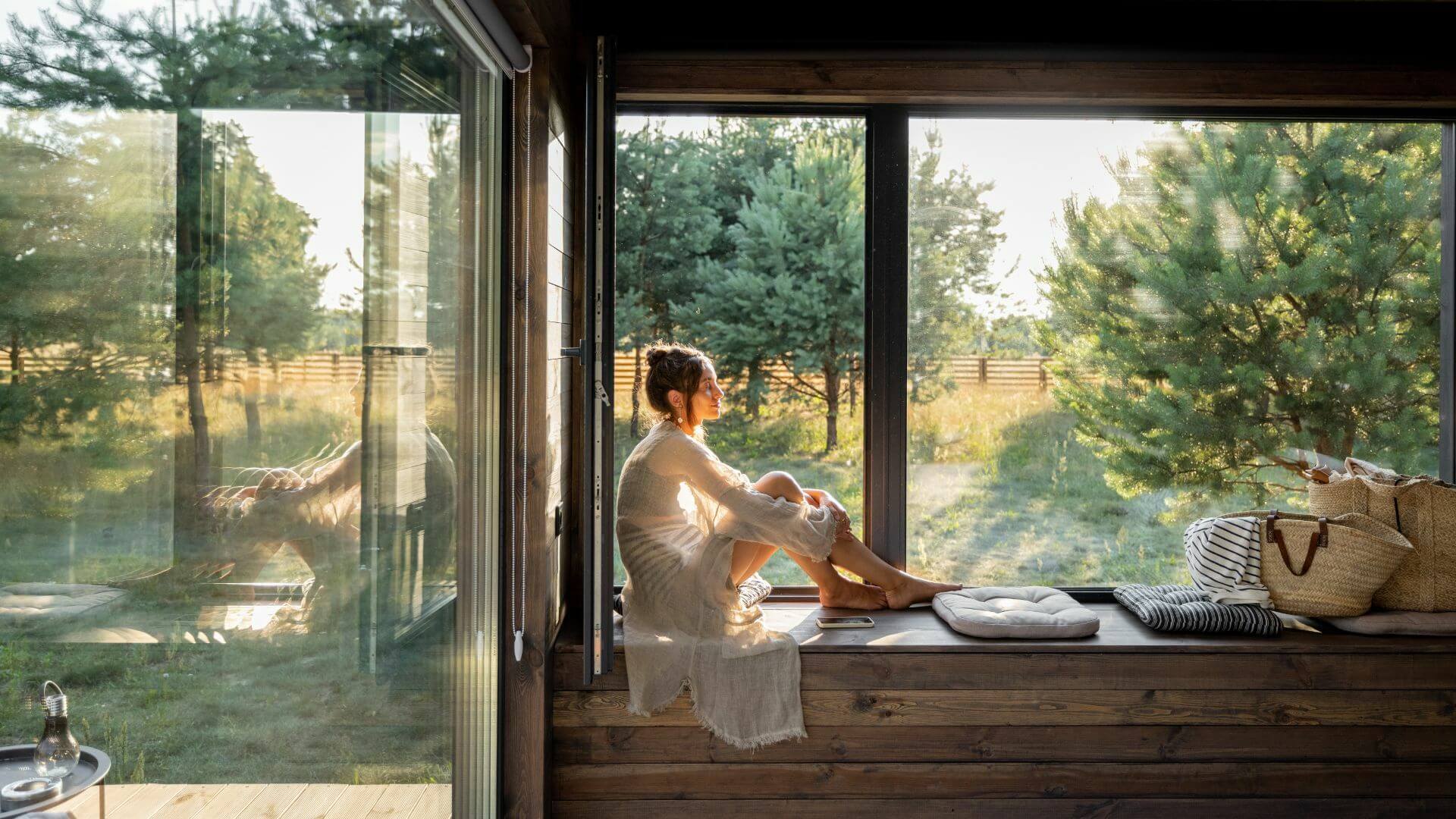 1. Financial Analysis and Budgeting
1. Financial Analysis and Budgeting